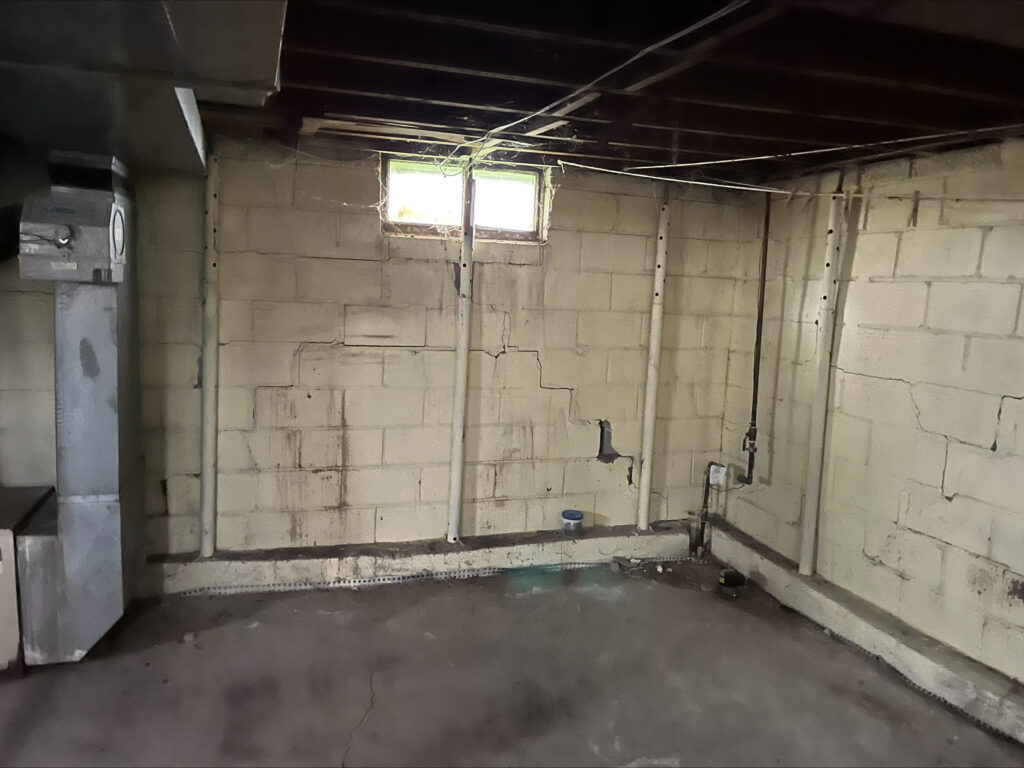
In the thick of Michigan’s rainy season, leaky basements are more common than ever. Whether you’re experiencing excess condensation or flooding after a heavy rain, a wet basement is never an issue you want to have in your home. It’s important to first understand what is causing your wet basement and the harms of water damage, so you can avoid common leakage repair myths and find a long-term solution.
Common Causes of a Wet Basement
Dampness or excess water in your basement, which often finds its way inside through small cracks in your basement walls or floors, can be caused by a variety of factors. If problems arise specifically after a heavy rainstorm, the issue could be your drainage system. Slopes, walkways, or drain spouts that angle toward your home, as well as gutters blocked with leaves and debris, can direct water into your basement following rainfall.
Alternatively, if you’re experiencing dampness and condensation, the problem could be related to the temperature and airflow in your basement. In these cases, condensation may appear as water droplets on your walls and floors due to warm air colliding with cool surfaces.
The Impact of Water Damage on Your Basement
A small foundation crack or a little water on the basement floor may not seem like a big deal at first, but these signs of leakage can create much bigger problems down the road. Consistent wetness in your basement, no matter the cause, can lead to water damage that permanently impacts your home and creates massive repair costs.
Harmful effects of water damage include the growth of mold or mildew, which can be difficult to spot if it develops beneath your drywall or flooring. Living with this issue for prolonged periods can potentially cause sickness and long-term health concerns. Additionally, excess water can rot the wood in your home, which impacts the property’s structural integrity and can come with hefty repair fees. If valuables are being stored in your basement, water caused by leakages can also permanently damage those items.
Myths For Keeping Water Out of Your Basement
To some homeowners, the professional basement waterproofing process can seem daunting and costly. Alternatively, DIY repairs are a simple and affordable option – we understand their appeal! While some basement leaks can be solved at home, it’s still important to know which methods are just quick fixes that won’t actually keep water out for good.
Waterproof paint and tar wall coating are two common methods for reducing the dampness of your basement, but neither can keep water out. These can be helpful just for moisture concerns, but if you’re dealing with excessive runoff, water will still find its way in through foundational cracks. Caulking joints is one temporary solution for sealing these openings, but it is not a reliable repair method long-term.
How To Actually Keep Your Basement Dry
While we do always recommend consulting your local foundation professionals for a second opinion, a number of DIY basement repairs are actually effective. Depending on the root of your problem, the following actions should help you lessen (or completely eliminate) leaky basement concerns at home.
If rainwater runoff is seeping into your basement, however, the first step is ensuring proper water drainage. This can include redirecting and extending downspouts, installing a french drain, or fine-tuning your landscape through sloping and leveling so water is not collecting where your foundation is standing. Condensation concerns are a little simpler to resolve; using a dehumidifier to limit excess moisture, or running heat in your basement during the winter, are valuable, quick solutions. If these fixes don’t fit your needs, waterproofing your basement or seeking professional basement repair services are also viable, long-lasting options.
There isn’t one right way to prevent leakages in your basement, but it’s important you don’t leave concerns unaddressed. For additional guidance on keeping your basement dry, and to learn more about foundation repairs, contact our team. We’d be happy to provide you with valuable resources and recommendations for next steps.
